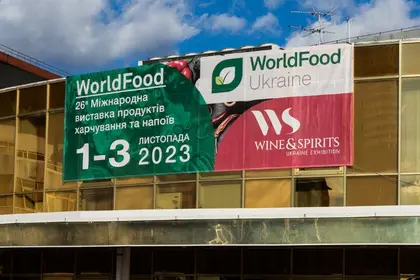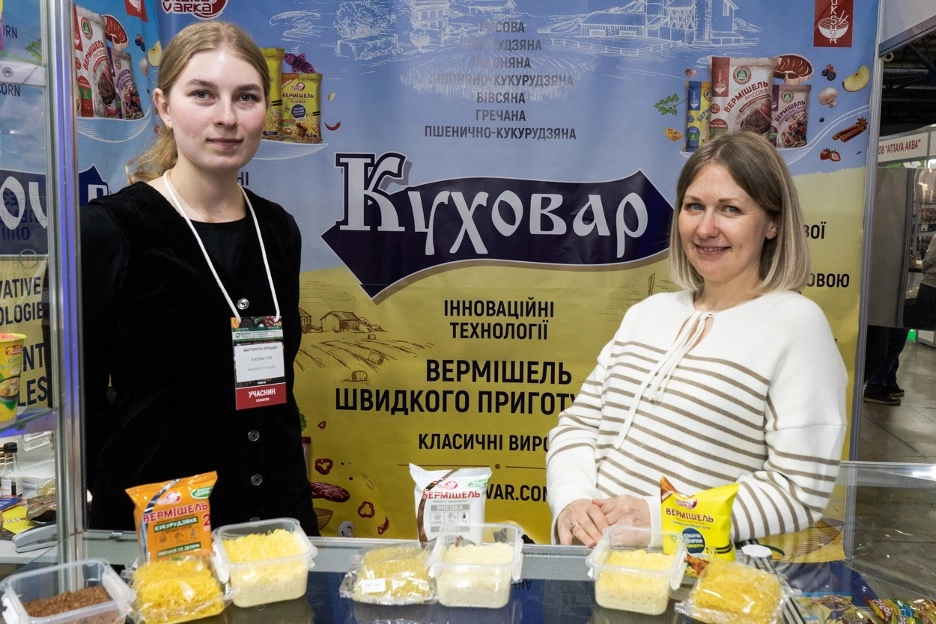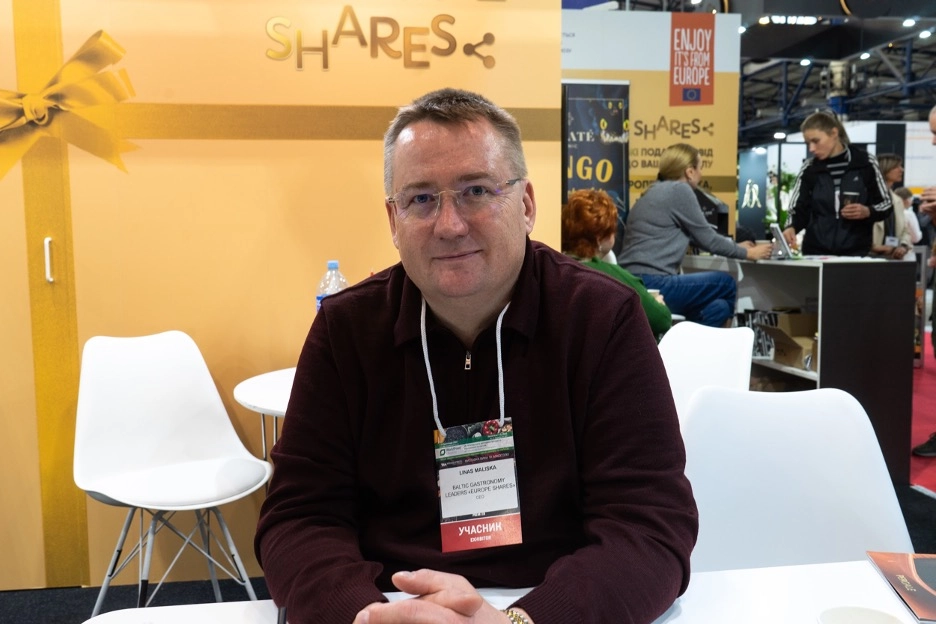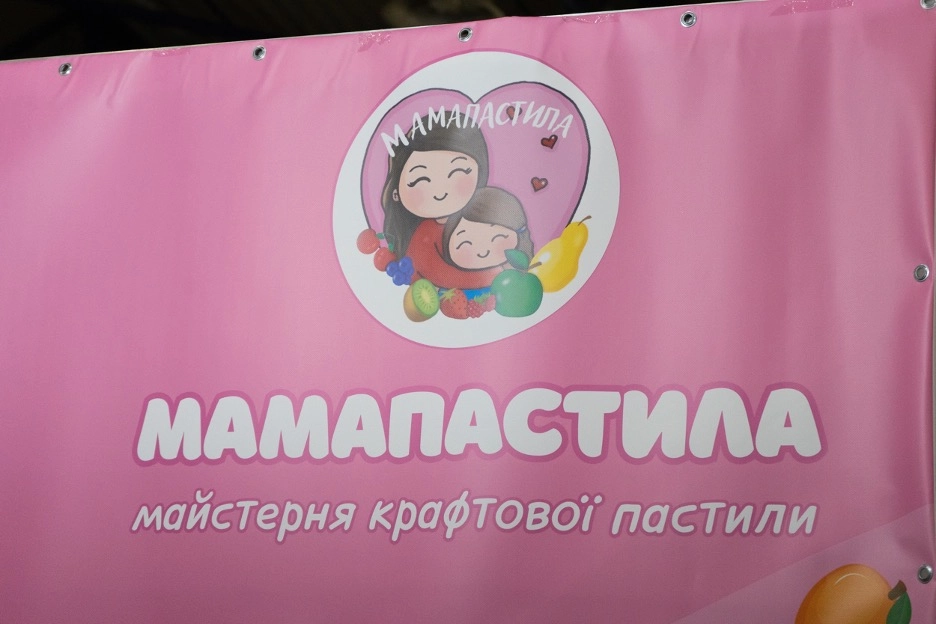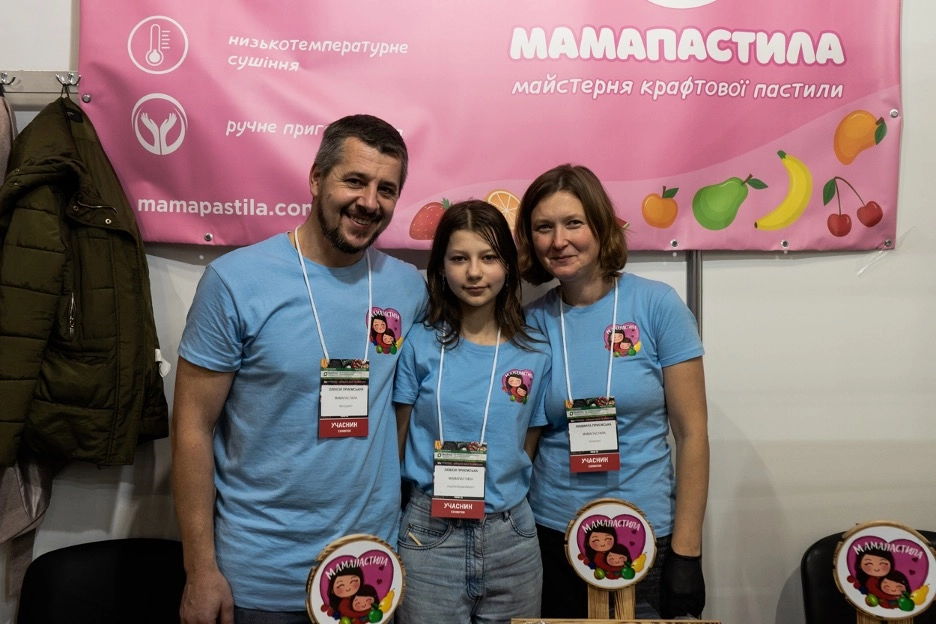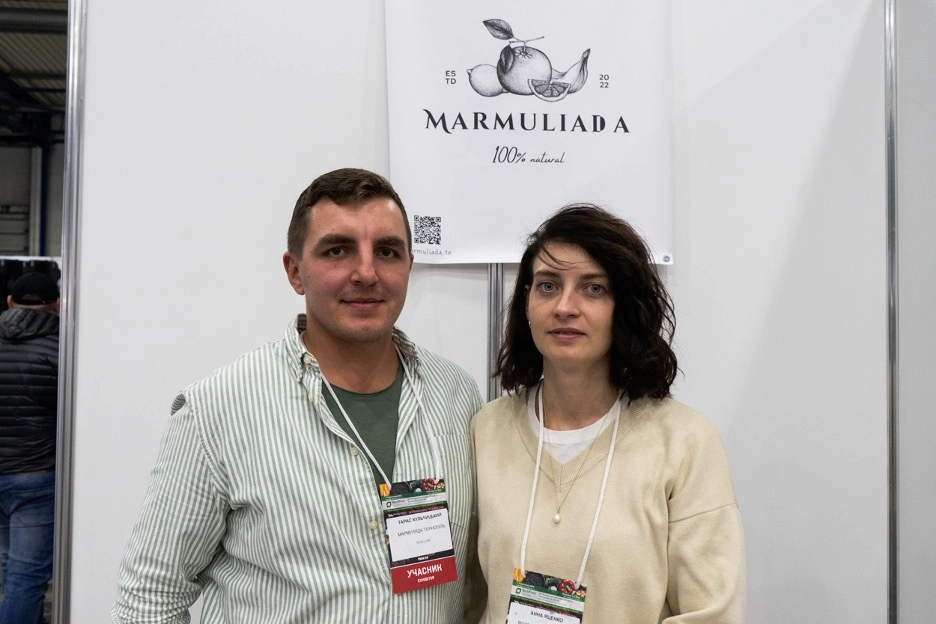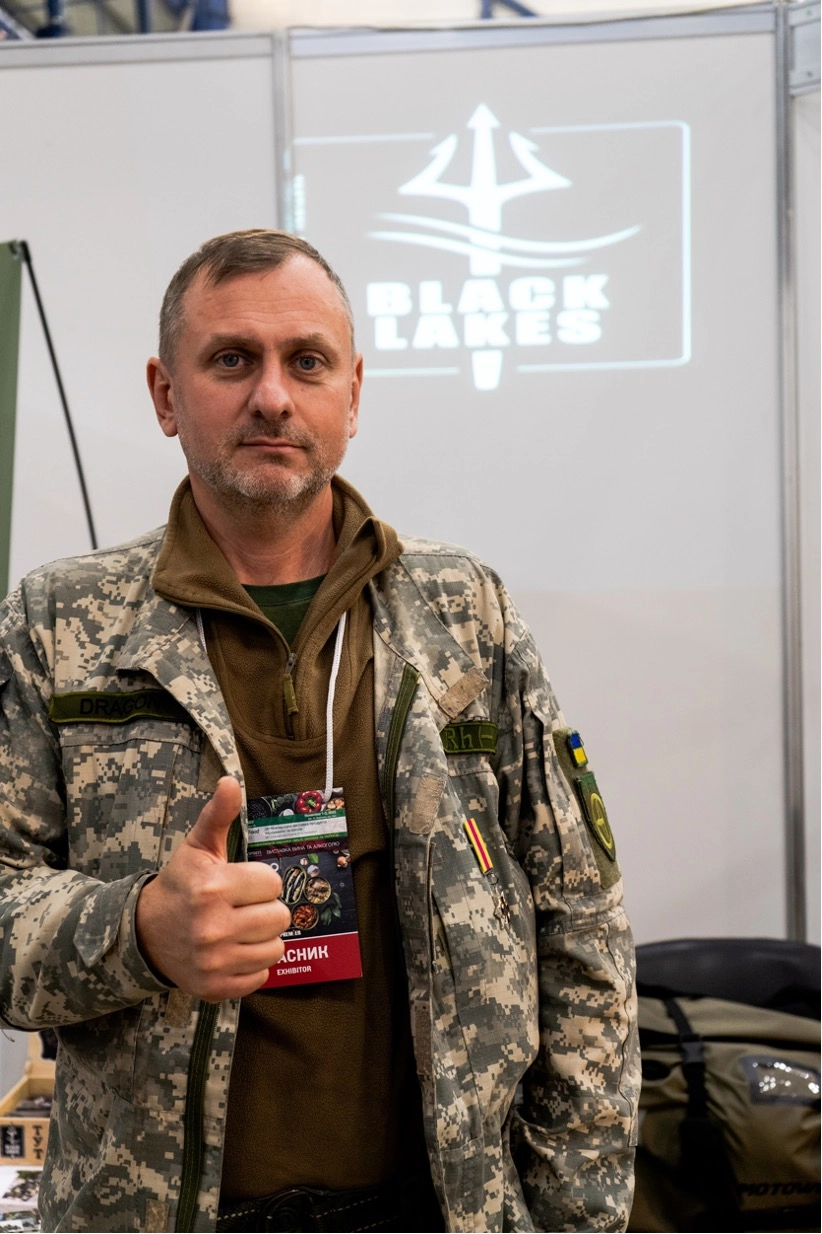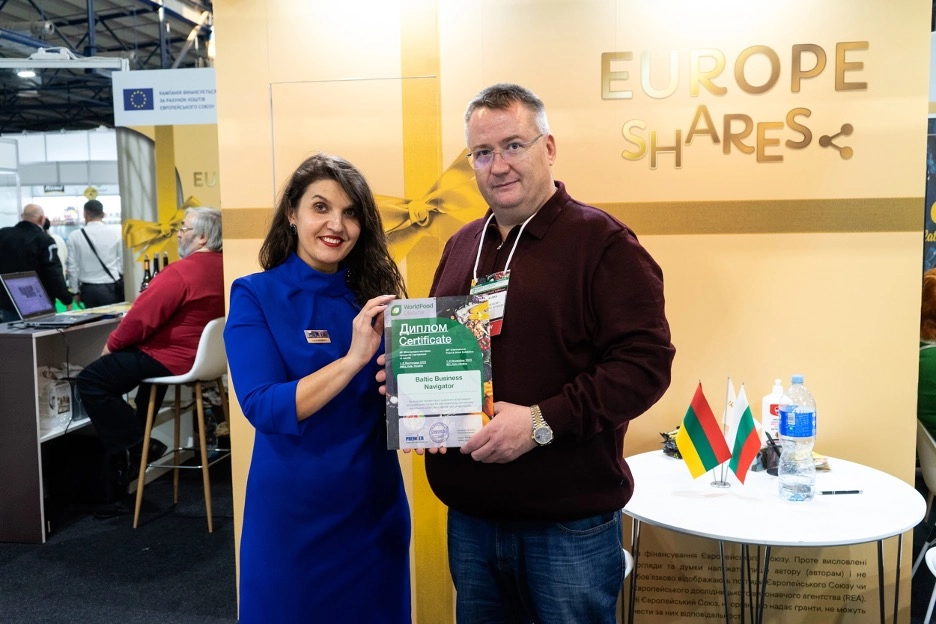At the recent three-day World Food Ukraine exhibition in Kyiv, thousands of visitors and exhibitors continued to negotiate deals, despite the ongoing war lurking in the background.
Many business owners showed a renewed sense of hope for the future, with some determined to stay despite shelling near their factories.
JOIN US ON TELEGRAM
Follow our coverage of the war on the @Kyivpost_official.
Kuhovar, an instant food maker from Kharkiv, had a variety of noodles on display. Among them was a gluten-free version of instant soba noodles made from buckwheat – the first in Europe, according to a representative – which they developed after the full-scale invasion began.
When asked about their factory in Kharkiv, the representative said its location is just 30 kilometers from the Russian border, and Russian shelling in the area remains a concern.
Despite the danger of the war, they are determined to stay.
“If everyone leaves, who’s going to stay?” said the representative. “We are from Kharkiv, and we want to develop our native industries.”

‘We Are Blocking Propagandists’ – Zelensky Imposes Sanctions on Pro-Russian Politicians
Representatives from Kuhovar at the World Food Ukraine 2023 exhibition. Photo: Kyiv Post
The same sentiment was shared by others in attendance, who had decided to stay and continue to develop their businesses despite the adverse circumstances.
Linas Maslika, a Lithuanian entrepreneur, has been bringing in products from the Baltic states and Poland, in partnership with the EU, since war broke out.
Maslika has been living in Ukraine for 11 years. Before the war, he would fly into Kyiv from Vilnius, Lithuania, every Monday, then return home on Friday for the weekend.
“At six o’clock in the morning you get on the plane, and by eight you are in Kyiv,” he said.
Now, a trip from Vilnius by land would take close to two days each way. Yet he is determined to be in Ukraine, spending three weeks each month in the country.
Lithuanian entrepreneur Linas Maslika. Photo: Kyiv Post
“Europe is Europe,” he said, implying that Ukraine is part of the European family, “and Ukrainians are freer in spirit – more so than some Europeans.”
He praised the quality of products from Ukraine and explained that the war is having a far-reaching impact – even in the Baltic states.
Electricity costs have increased by five times in the winter he said, which means higher costs for factories and higher prices of products manufactured.
Further down the exhibition hall was a family-owned business called Mamapastila. Beneath its pink banner, a father, mother and daughter were selling their homemade pastila, a traditional Eastern European confectionery.
Banner of Mamapastila. Photo: Kyiv Post
Oleksiy is the manager, his wife Lyudmila takes charge of production, his eldest daughter takes care of marketing on social media, and his younger daughter designed the logo – a family-owned business through and through.
Oleksiy introduced the brand after the war began, and the products on the shelf at the exhibition were all made at home the night before.
The business is still in its early stages but garnered much interest from visitors at the exhibition. Oleksiy said they are considering selling their products abroad and are looking to sort out the documents required.
The family behind Mamapastila. Photo: Kyiv Post
Exhibiting beside them was Kyiv City Roastery, a local coffee roasting company that imports coffee beans from other countries and sells them to different cafes and kiosks in the city.
According to Anastasiia Biletska, who works at the roastery, imports were difficult at the beginning of the war, but things have mostly returned to normal. That said, the government has raised taxes on equipment imports, which she says has become a burden for the business.
Marmuliada, a small marmalade manufacturer from western Ukraine, also imported ingredients from other countries – fruits, in their case.
The business’s goal was to introduce less-common options to the domestic market. Instead of regular jams that one would often find on the shelves, they wanted to bring in marmalades made of unusual fruits such as kiwis and limes, according to owner Taras Kulchitsky.
Taras Kulchitsky and Anna Yatsenko from Marmuliada. Photo: Kyiv Post
While the brand has gained some interest from international buyers, its focus remains on domestic markets in Ukraine.
Kulchitsky started the business after the war began with his partner Anna Yatsenko – for friends at first, he said – but then interest grew and they decided to start selling them in local shops, followed by different cities across Ukraine.
Despite the ongoing war, they decided to continue doing what they love and share it with their countrymen.
In an inconspicuous corner of the exhibition hall stood a man in military uniform, who was there to promote a local military training center for soldiers and civilians alike.
His name was Yaro, call-sign “Dragon” in the military, and was stationed in the drone operations unit. On his chest he wore a medal that he’d received for his military service.
Yaro from Black Lakes Tactical Center. Photo: Kyiv Post
Some of those who organized the exhibition visited the training center, he said, and decided to let them have a stand free of charge in solidarity.
Those from the center also made chocolates to raise money, and on the back of the chocolate bars were QR codes where people could learn more about what they do.
During the conversation, a gray-haired woman walked past, and without hesitation exclaimed “Glory to Ukraine!” to which Yaro smiled and responded with “Glory to heroes” in the traditional fashion.
There was no sound of gun fire, nor shelling in the background, but war is never far away for Ukrainians, including businesspeople.
Project manager Olena Uleshchenko presenting a certificate to Lithuanian entrepreneur Linas Maslika. Photo: Kyiv Post
According to Project Manager Olena Uleshchenko, foreign participation at the exhibition has fallen drastically since the war began, with only two foreign exhibitors in attendance – Linas from Lithuania, and Saakashvili Winery from Georgia, owned by ex-president of Georgia and Ukrainian politician Mikheil Saakashvili, with his brother Giorgi in attendance.
“This affected not only demand for participation but also the visiting of buyers from abroad,” Uleshchenko said.
She said that the war has had a huge impact on local industry but, despite the circumstances, participation has returned to pre-war levels – minus the usual foreign participation.
“The food industry in Ukraine [keeps] suffering like any other Ukrainian industry from war and its consequences: destruction of production and storage facilities, [blackouts], lack of specialists due to people joining the Armed Forces of Ukraine to protect our citizens and our lands,” she said.
“But all this does not mean that we should give up and postpone our lives and business,” she added.
Like many of the exhibitors, Uleshchenko keeps a positive attitude and is determined to make the best of things.
You can also highlight the text and press Ctrl + Enter


